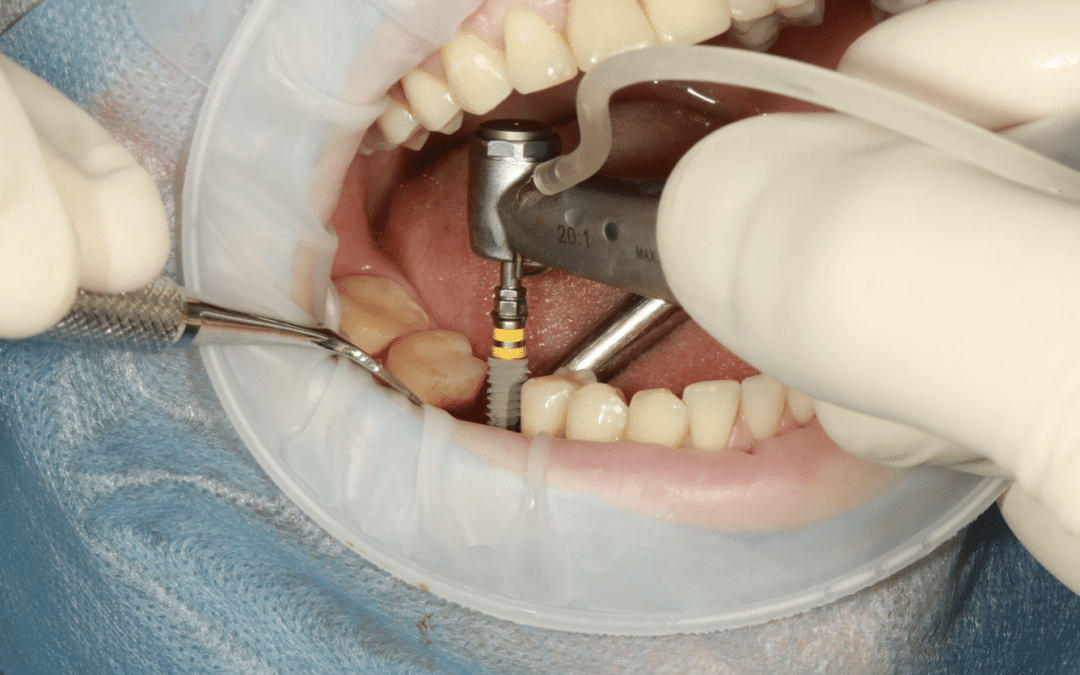Did you recently lose a tooth? That gap in your smile can cause serious complications if you delay seeking treatment. More people are scheduling dental surgery to restore their smiles.
In fact, the total number of dental implants in the US could increase by 23% by 2026. Before scheduling oral surgery, review the dental implant surgery recovery process with your dentist.
Planning ahead will ensure you fully heal before the surgeon places your artificial tooth. Read on to learn about the recovery process today!
The Consultation
Before scheduling oral surgery, schedule a consultation appointment with your dentist. Discuss your dental goals and learn more about the procedure.
During this appointment, your dentist will assess your oral health and review your dental history. Discuss your medical history, medications you’re taking, and pre-existing conditions you have. They’ll determine if you’re an ideal candidate for dental implant surgery.
Ideal candidates:
- Are in good overall health
- Have good oral health
- Have enough jawbone density
- Are committed to their oral hygiene
- Don’t smoke
- Have one or more missing teeth
If your jawbone lacks sufficient density, it won’t keep the dental implant (which looks like a small screw) stable. Your dentist may recommend a bone grafting procedure first. This procedure will build up your jawbone to ensure stable implant placement.
If you have an oral disease, you may need to seek treatment first. For example, perhaps you have gum disease, which led to tooth loss.
The increased prevalence of oral disorders worldwide has caused a surge in demand for dental implants. For example, about 3.5 billion people are suffering from oral disease. Oral disease like periodontal disease can cause you to lose teeth.
Your dentist will develop a customized treatment plan based on your needs. They’ll consider the number and type of implants needed.
Let your dentist know if you’re taking any medications or have any allergies. Stop smoking and avoid taking blood-thinning medications before the procedure.
Plan to get a ride home after your oral surgery. You likely won’t be able to drive.
First 24 Hours
Most patients experience pain and discomfort following oral surgery. For pain relief, take over-the-counter pain medications. Follow your dentist’s instructions to avoid complications.
Some swelling and bleeding around the surgical area is normal. Place a cold compress against the side of your face for 15 to 20 minutes.
Avoid unnecessary physical activity and strenuous exercise during this time. Otherwise, your risk of bleeding and discomfort could increase.
For the first few days after dental surgery, eat soft foods. These include:
- Applesauce
- Yogurt
- Oatmeal
- Fish
- Mashed potato
- Jell-O
- Eggs
- Ice cream
- Smoothies
- Soup
Consuming these foods can support your recovery process. Don’t drink from a straw for at least one week. It could dislodge blood that’s clotting in the socket.
Avoid foods that are spicy or acidic. Don’t drink caffeinated, carbonated, hot, or alcoholic beverages.
You can return to your normal diet three to five days after surgery. Try to eat on the opposite side of the surgical area. You don’t want to exert unnecessary pressure on your healing wound.
One to Two Weeks Later
The first two weeks after oral surgery are critical to ensure the implant’s success and longevity. During this time, your gum tissues will heal around the implant site. Avoid disturbing this area as much as possible.
You may experience some pain and swelling. Keep using cold compresses and taking over-the-counter pain relief medication.
Schedule a follow-up appointment with your dentist one to two weeks after the surgery. They’ll assess the implant site and your oral health. A check-up will confirm the surgical site is free of infection.
Two to Six Weeks Later
During this time, you can slowly return to your normal routine and diet. Prioritize your oral care routine to follow a smooth healing journey.
The surgical site needs to heal before you can receive your tooth replacement. Osseointegration will occur over the next few weeks. This process ensures the dental implant fuses with your jawbone.
Osseointegration creates a strong foundation for your dental prostheses. This process can take between a few weeks to several months. Your individual healing response will affect the timeline.
Soft tissue maturation will occur as tissues around the surgical site strengthen. You may notice your gum health is improving.
Your gums should form a tight seal around the implant. This will keep bacteria from causing an infection.
Long-Term Recovery
Once osseointegration is complete, see a dentist. They’ll confirm the implant has fully fused with your jawbone.
Your dentist will place the abutment; a connector that joins the prostheses to the implant post. The dentist will incise your gums to expose the top of the implant.
After attaching the abutment to the post, the dentist will suture the gum tissue closed. The abutment will protrude above your gum line.
Your dentist will create an impression of your mouth to design your dental crown. The custom-made crown will match the shape and color of your existing teeth.
Once it’s ready, the dentist can place the abutment atop the implant. They’ll cement it into place. Now you have a fully functional tooth!
Dental implants have high survival and success rates. However, your lifestyle choices could affect the implant’s longevity.
Make sure to follow your dentist’s instructions to avoid complications. Try to avoid these maintenance errors.
When to See a Dentist
See a dentist right away if you experience prolonged pain or signs of an infection. Persistent or worsening pain could indicate implant failure. Consult your dentist to avoid complications.
Make sure to schedule follow-up appointments. These visits will play a vital role in your recovery. Your dentist will assess the implant site and make adjustments to your treatment plan as needed.
Begin Your Dental Implant Recovery Process
Your dental implant recovery process will take a few months. Follow your dentist’s instructions to avoid delays. Once you heal, you can start showing off your beautiful new smile with the utmost confidence!
Our team at Carolina Smiles offers the highest standard of dentistry services. Rely on our experienced, compassionate dental team and innovative technology. Contact us today to discuss your upcoming oral surgery.

